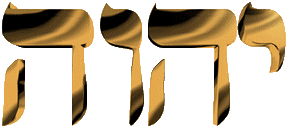[This is part of the series, IN HIS NAME, originally posted May 2012.–Admin1.]
The first thing we Sinaites did when we found the One True God and discovered His Name, was to repent of the sin of IDOLATRY. Say that again? IDOLATRY! Why? Don’t we all worship the same God? Don’t all religions lead to Him?
We normally associate the sin of idolatry with idols, statues, carved images which are venerated; we had long left that behind as former Catholics. It had never been a problem for us as evangelicals or messianics who had no need for visual representations as reminders of the god we worshipped. Surely we were not in violation of the commandment that was stricken out of the Catholic version of the 10 Commandments:
You shall not make yourself a carved image or any likeness of that which is in the heavens above or on the earth below or in the water beneath the earth. You shall not prostrate yourself to them, nor worship them, for I am HASHEM your God—a jealous God, Who visits the sin of fathers upon children to the third and fourth generations, for My enemies; but Who shows kindness for thousands [of generations] to those who love Me and observe My commandments. [AST] Exodus 20:4
[AST] Exodus 20:3: You shall not recognize the gods of others in My presence.
[AST] Exodus 20:7 You shall not take the Name of HASHEM your God, in vain.
Who are “the gods of others”? These commandments were given originally to the mixed multitude on Sinai. Israel and the non-Israelites among them had witnessed the 10 plagues which were directed at the gods of Egypt by this God on Sinai who made His Name known to them as YHWH. So in their context, the “gods of others” would be Egypt’s gods.
The Hebrew Scriptures shows they struggled with this commandment through the centuries. Someone rightly said that YHWH succeeded in getting Israel out of Egypt but could not violate His gift to humanity, FREE WILL, by forcibly getting Egypt out of Israel except by declarations and warnings. It was not until the exile when Israel finally got rid of the sin of idolatry and devoted themselves to the God Who made a covenant with them on Sinai. “Egypt” symbolizes the worship of false gods in the world who simply take on different names in the languages of different idolatrous people-groups and are re-invented by man-made religions.
The character and attributes of this God on Sinai who introduced Himself as YHWH would be affirmed further by His constant declarations about Himself as well as His acts for and against Israel thereafter, all recorded in the Torah and further elaborated on in the Neviim [Prophets] and Ketuviim [Writings] in the official canon of the Hebrew Scriptures. The declarations of YHWH are consistent throughout those Scriptures. To keep it simple—-
- “His Name is YHWH
- He is One, as in ALONE
- His Torah is to be obeyed by His people
- Any deviation is considered “sin” as in “missing the mark.”
- There are automatic blessings for obedience and curses for disobedience;
- For Israel, consequences were practically literal, as their history attests to.
So what about the rest of the world, non-Israel? Have we been worshipping “the gods of others” and if so, whose?
For us Sinaites, we were deep into believing, having faith in, declaring Christianity’s version of god: the Trinity. We had been invoking a name other than YHWH in all our prayers, specifically “in Jesus’ mighty name.” In fact because of this almost mindless habit of ending our prayers, it took us a while to consciously avoid uttering “in the name of . . . ” followed by an awkward short silence, we would get flustered and either end with a fast “amen” or substitute “in YHWH’s Name”. But why pray to YHWH and end with “in the name of YHWH”? Doesn’t make sense.
Time has passed since, and we thank our Adonai Elohim YHWH that we are where we have chosen to be today—
- and living His Way, the Torah life.
- learning His Truth,
- on the pathway toward His Sinai revelation,
There is a choice to make each time an alternative “truth” confronts you. It’s like travelling—you don’t know the way, so you ask for directions. If the sources you depend on for directions are reliable, you will get there; if not, well . . . . If there’s a reliable map, you check out the route yourself and depend on nobody else.
Our map through life on earth is God’s original revelation, the Torah in the Hebrew Scriptures. It took us a long time to figure that out.
What a gracious and merciful God is He indeed, to have answered so many of our prayers all those years we were invoking the wrong name and praying to a non-god. It continues to baffle us that YHWH would indeed answer such prayers positively, knowing that answered prayers further encourage and in fact reinforce the faith and belief of the person praying, attributing the answered prayer to their object of worship instead of to YHWH Himself! In fact it is the very reason given by some who say they cannot possibly abandon Jesus, [or Mary, or their patron saint] because of answered prayers. That alone, they say, is evidence Jesus is god, or that Mary can hear and even answer all prayers just like God.
To us, it is evidence indeed, but more of the wisdom, understanding, grace and mercy, not to forget the long-suffering attribute of YHWH who patiently waits for each God-seeker to get over religion, abandon their false gods, and return to Abrahamic faith and to the Scriptures where one discovers Him.
Amen indeed, and hopefully “in deed”!
for Sinai 6000
Core Community




Reader Comments